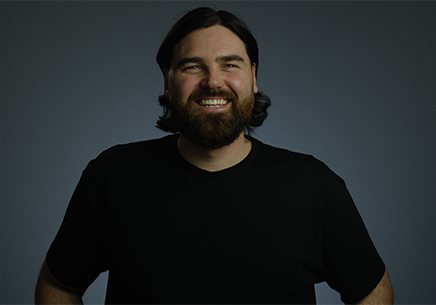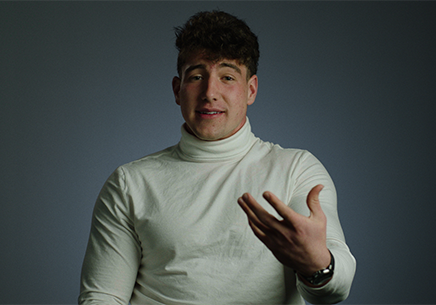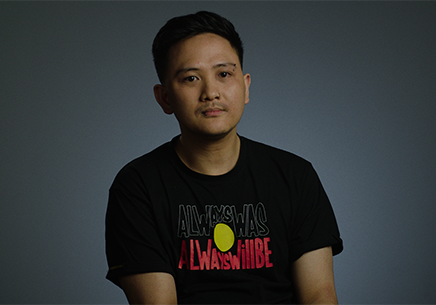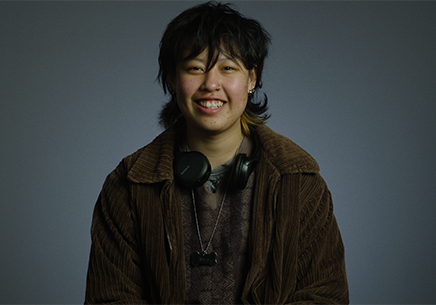Showing information for:
Next steps to get some of that therapy goodness in Canada
OK, so you’ve watched the What is Therapy series. And now you’re giving therapy some serious thought. So, let’s get into it.
Where should I look?
One option is to make an appointment with your doctor or nurse practitioner who can refer you to see a psychologist or other qualified therapist.
There’s also the option of seeing a therapist privately. Cost considerations come with this so make sure you see someone who is suitably qualified. You can search for a private therapist online at HeadsUpGuys.
You can also try talking to your family or friends and asking if they have any recommendations of someone they’ve seen and liked.
Or see if your workplace Employee Assistance Programme (EAP) offers a therapy and/or a referral service.
Canadian Register of Health Service Psychologists
Search by postal code, city or province to find a Psychologist.
Visit CRHSPDo I need a referral?
Your doctor or nurse practitioner can refer you on to a therapist. Therapists in public institutions are usually covered. Private therapists are not covered although your employee benefits plan may cover some costs. See costs overview below.
If you see a therapist privately or through an EAP program, you can self-refer.
What are the costs?
Universal health care covers therapists and other mental health professionals in certain settings such as hospitals. Or provincially-funded community health centres.
If you’re seeing a therapist privately, costs can vary by a lot depending on the background and experience of the therapist.
Workplace EAP services are another option. They’re no or low cost to employees as part of employee benefits. Every organisation is different though so check first.
What if money is an issue?
Speak to your doctor or nurse practitioner to access a therapist via the public health system.
Some private therapists offer sliding fee scales based on income. While some organisations can provide reduced costs depending on your circumstances.
What should I look for in a therapist?
When you google ‘therapist’ you won’t always get just psychologists or counsellors. Pretty much anyone can call themselves a therapist. So you’ll want to make sure you’re seeing someone who’s a regulated health professional with the appropriate experience and training for your situation.
Also, have a good look through their website. Read their bio. Look at their pic. See how it all sits with you. Look for what they treat rather solely their professional background. Any therapist should be able to build the right relationship. Often, it’s simply the matter of the right fit. Consider whether face-to-face or telehealth feels right for you and discuss this with your therapist – either, or a combination may be best suited for you.
Therapists are typically licensed for their own province and cannot practice outside of it. If you live in a remote area, online sessions with a therapist in your province work like a charm.
What are the wait times?
Different parts of the country have different wait times. Sometimes you may get in within a few weeks for an initial assessment, then need to wait longer for treatment sessions. Going through your EAP may be quicker.
What if the waiting list is months long?
Ask your doctor or nurse practitioner if there’s someone else they can refer you to who might be available sooner based on your situation.
Or, if you’re seeing a private therapist—keep looking. Someone else might be able to see you sooner. Be relentless, your mental health deserves it.
What are the types of therapists?
Pretty much anyone can call themselves a therapist. But if you’re investing the time and money to go to therapy, you want to make sure you’re seeing someone who has the qualifications and skills to make it safe, and worthwhile.
Psychologists are university-trained experts in human behaviour. They use evidence-backed approaches to help people understand and change unhelpful behaviour and ways of thinking. Psychologists also work with a range of mental health issues. Social workers and other professionals can also be excellent options.
Counsellors use talk-based therapies to help people get to know themselves better, cope with challenges they may be facing in life, gain some perspective and learn coping strategies. They aren’t trained to the same level as psychologists though when it comes to mental health. It’s worth noting as a profession counselling is not always formally regulated. This means anyone can call themselves a counsellor.
Then there are psychiatrists. They’re physicians who specialise in diagnosing and treating mental illness. They tend to treat complex and serious mental illness and are able to prescribe medication when needed.
What are the types of therapy?
There are loads of approaches to therapy. It’s important to discuss the best approach with your therapist and come to a mutually agreed upon approach. Once they get to know you, they’ll probably be able – and willing – to recommend what might be right for you.
Should men see a male therapist?
Not necessarily. Lots of guys have a preference for the gender of their therapist. And that's totally fair. But it's important to remember that a good therapist is a good therapist. So try to focus on whether or not you connect with them first, rather than their gender.
That said, seeing a male therapist is helpful for many men. They might relate better to another man. Or feel more comfortable in the shared lived experience of ‘being a man’. However, less than 25% of therapists are men, so finding one can be tricky.
For other guys, though, they might find this too confronting (at least at the beginning). They might prefer a female therapist for any number of individual reasons, we don’t judge and neither will they! Men, women and anything in between, these therapists are all trained to support you on your mental health journey.
Focus more on seeking out someone you think you’ll feel comfortable with.
Focus on whether or not you connect with them first, rather than their gender.
How do I talk to my therapist for the first time?
A clever trick is to pretend they’re a long-lost friend you haven’t spoken to in a while and update them on your life. These don’t need to be hard, dark and awkward conversations, therapists are just humans. They’re not there to judge, they’re there to confidentially understand and support. If you’ve had a shit time before when trusting someone, that really sucks, but don’t let one bad egg ruin your omelette.
Your new therapist is used to talking to people for the first time, so let the therapist lead and do their thing. It's important for you to be honest, and to let your therapist know if there’s something you’re not ready to talk about yet. Remember, you’re the expert in your life, there’s only so much any therapist can do without you leading the way.
You can always make initial contact with a therapist and request an opportunity to chat over the phone. This gives you a feel for whether they would be a good fit.
Tip 1
Let the therapist lead and do their thing.
Chat to them like a friend you haven’t seen in a while.
Let them know what’s been going on in your life.
How should I prepare for a session? Especially the first one?
1. Jot down questions, goals, fears and motivations. Use a piece of paper or your phone. Think through all of these and try and be as open and honest as you can be. Have a think about your expectations and voice them to your therapist so you’re on the same page. Try this before any session.
2. Have an idea of your goals for therapy. Some good prompting questions to ask yourself are “What do I want to get out of therapy?”, “What changes do I want in my life/what do I want to be different?”, “How will I know when I’m done with therapy – what will be different for me?”, and “What’s not working and why?”
3. Relax. Try to free up your day after the session, or at least try not to immediately rush into another appointment or meeting.

Part of me was thinking everyone's stressed, get over it. But, what kept me on track was knowing that I can't feel like this forever.
Mark

Be fully committed to helping yourself, whatever it takes, however many psychologists you have to see or what you have to learn. There is an answer at the end.
Theodore

I think there's something valuable in being able to let out the things that have been really getting you down in one place, in a single place, and that's the place where you can process it, or you can leave it.
Nathan

It doesn't have to be that formal if you don't want it to be. Like, I made my therapist a slideshow.
Wolf
FREQUENTLY ASKED
QUESTIONS
How often should I see my therapist?
You’ll probably want to start with every week or every other week for the first few sessions. This will help your therapist get to know you and understand your concerns. After a few sessions you’ll both have a better idea about how often to meet.
Most research into the effectiveness of therapy is based on weekly or fortnightly sessions. This is more of an ‘active’ approach to therapy. Monthly sessions, or less, take more of a maintenance approach.
It can depend though on how they tend to work. And what you prefer. It’s the time between therapy sessions where the real work (practice/exposure etc.) gets done.
What should I do between sessions?
Some therapists give homework to complete between sessions. But most just ask you to think about and try to incorporate what you’ve discussed during session. It might be time to invest in a journal to jot down your midnight brainwaves.
Your therapist will help you implement changes between sessions. This will mostly be based on the work you’re doing with them. Making day-to-day progress is key, and if you fall off the horse, the important thing is you don’t let it run away. Perseverance is the long game.
You can also talk to friends and family about what you’re hoping to work on and ask them to call you out if you’re falling back into patterns. The trusty old eat/sleep/exercise/repeat approach works well, too.
What if I start to struggle between sessions? How do I avoid this?
You don’t have to just sit and wait for your next appointment. Contact your therapist and ask to move your next session forward if possible.
If your therapist has taught you some coping skills, practice them. It’s the same as learning to play a sport, an instrument, or a video game: you have to practice to get better.
Also know that true, long-term resilience comes from within. So, riding the ups and downs and surviving it is real success. It’s expected the road will be bumpy and you will fall off the horse, but it’s how you get back on it that matters.
What if i’m having thoughts of self-harm or suicide?
There is always someone available, 24/7.
If you are having thoughts about self-harm or suicide call a service below immediately. Also consider saving them in your phone.
911
What’s next?
Check out all five ‘What is therapy’ videos if you haven’t already. Re-watching can be helpful, too – and we’re not just saying that because we made them. And hey, if you know someone who might find them useful, share away.
We’d love to learn about your experience on Movember Conversations
We're here to create better tools and resources for you and your life. So open up! Tell us your thoughts and ideas.
